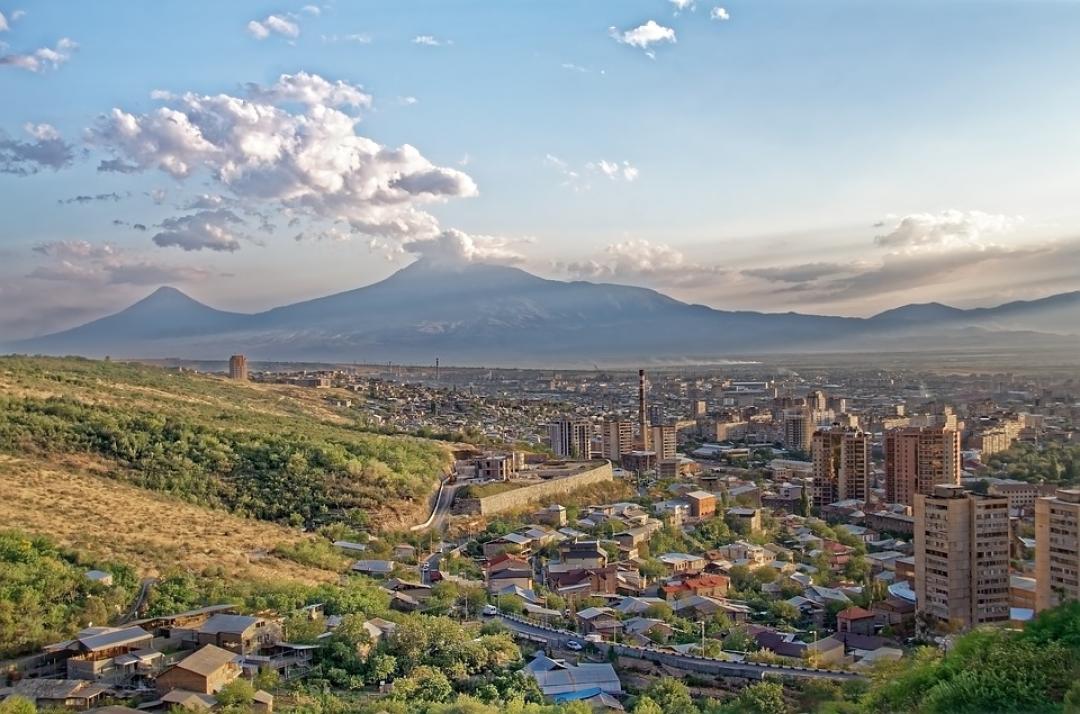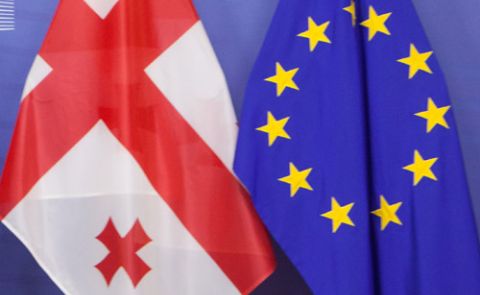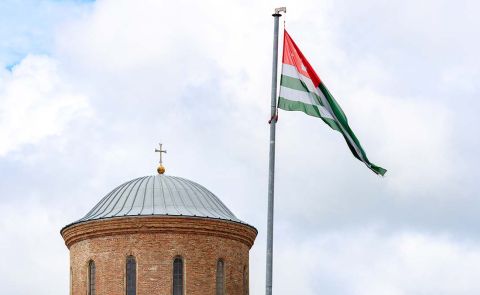
Mnatsakanyan lays out the main goals of Armenian foreign policy; Azerbaijan responds

On 27 August, the Armenian Minister of Foreign Affairs Zohrab Mnatsakanyan underlined the most important goals of his country's foreign policy. Speaking in front of the Central Apparatus of the Armenian MFA and the ambassadors stationed abroad, he said that the three main principles of his country's foreign policy are sovereignty, pan-Arminianism and partnerships with other countries.
He described the principle of sovereignty as the core principle of Armenia's diplomacy, which first of all means the protection of Armenia’s state interests and all citizens of Armenia regardless of ethnic or religious affiliation. Pan-Arminianism is understood both as a principle and a resource, and it foresees Armenia's role of being the main axis of actions between the Republic of Armenia, Nagorno-Karabakh and the Armenian diaspora. Finally, Mnatsakanyan underscored the importance of developing partnerships with every country which maintains friendly relations with Armenia.
Mnatsakanyan also spoke about Armenia's relations with the countries in the region as well as with the US and the countries of the European Union. According to Mnatsakanyan, Azerbaijan remains a threat to the people of Karabakh and to regional security and peace. “Armenia is for the peaceful settlement of the Karabakh conflict but it cannot accept Azerbaijan’s open or covered threats of force. With its unchanged policy of Armenophobia Azerbaijan continues being the threat to the existence of the people of Karabakh. If Azerbaijan would really be interested in a peaceful settlement of the conflict it should be equally interested in negotiating with the Karabakh authorities elected by the people of Karabakh,” he said.
A similar standpoint was taken by Mnatsakanyan when describing Armenia's relations with Turkey. "Turkey's refusal to establish diplomatic ties with Armenia, the economic blockade of the country, the continuation of the denial of the Armenian genocide, the recent excuses of the Turkish government of these actions and the unconditional and open support for Azerbaijan in regards to the Karabakh conflict create an atmosphere of constant confrontation between Turkey and Armenia", according to Mnatsakanyan.
The relations with the other countries in the region, namely Georgia, Iran and Russia, were praised. The relations with Georgia and Iran are considered to be very important for regional security and the economic development of the country, as well as for the diversification of energy and transport interdependence. Russia is perceived as a "reliable strategic ally" to Armenia with a comprehensive alliance program, which includes cooperation in the fields of politics, the military, energy and infrastructure development, trade, education and culture.
In regard to the United States, Mnatsakanyan praised Washington's engagement in the maintenance of regional peace, as well as the economic and financial assistance which is contributing to the socio-economic stability in Armenia.
Armenia perceives the Comprehensive and Enhanced Partnership Agreement (CEPA) as the basis of relations with the EU. Mnatsakanyan also stressed the importance of the EU's assistance to the democratic reforms and state-run agencies in the country, as well as the EU's participation in regional programs. He highlighted that among the EU member states, the positive relations with Germany, France and the trilateral Armenia-Greece-Cyprus cooperation, which was established on 4 June 2019 and which foresees cooperation in trade, tourism, agriculture and cooperation in international organizations are particularly important.
Another important region to Armenia is the Middle East, stating that Armenia's presence there is of a civilizational importance and that Armenia intends to develop relations with all the countries in the region. Mnatsakanyan especially stressed that the Syrian crisis had a direct impact on Armenia that cannot be disregarded. Finally, Mnatsakanyan also spoke of Armenia's readiness to be involved in global infrastructure projects, especially in the Asia-Pacific region.
The Azerbaijani Ministry of Foreign Affairs responded quickly to Mnatsakanyan's recent statements in regard to Karabakh and Azerbaijan. "The Minister of Foreign Affairs of Armenia distanced himself from reality and allowed himself to attack Azerbaijan in an inappropriate manner to the essence of the negotiations. There is no concept of “the people of Nagorno-Karabakh”, there is an Armenian and Azerbaijani community in this region of Azerbaijan. The internationally accepted model for the settlement of the Armenian-Azerbaijani Nagorno-Karabakh conflict is based on the norms and principles of international law, consistent with decisions of the UN, the OSCE and other international organizations, primarily the four known UN Security Council resolutions. The attempts of the Armenian Foreign Minister to somehow justify the aggressive intentions of his country, referring to the people's right to self-determination, which implies the free expression of the will of citizens, are in no way consistent with international law or common sense. It is impossible to advocate the realization of the rights of part of the population of any territory, if this leads to a complete violation of the rights of its other part", read the official statement of the Azerbaijani MFA.
"The rights of the Azerbaijani community of the Nagorno-Karabakh region of Azerbaijan, now under the occupation of the armed forces of Armenia, were violated en masse due to the aggression of Armenia against Azerbaijan. And only after the restoration of the fundamental rights of the Azerbaijani community of the Nagorno-Karabakh region of the Azerbaijan Republic and if they are granted a safe return to their homes and a decent living there, it will be possible to specifically discuss the forms of realization of the rights of the residents of the region to self-government. The latest statement by the Minister of Foreign Affairs of Armenia aimed at domestic consumption is fraught with a very dangerous tendency to escalate the conflict. Armenia should decide: do they want peace, or escalation?! One gets the impression that the current Armenian leadership is consciously inclined to escalate the situation, rather than to reach a settlement. Unfortunately, we have to admit that officially Yerevan today proceeds from annexationist, and not from realistically tied positions. However, in any situation, it is obvious that Azerbaijan will never reconcile with the existing status quo based on occupation. Our patience is not unlimited," concluded the statement.
See Also


BP Strengthens Presence in Azerbaijan’s Offshore Energy Sector

Netanyahu’s Letter to Aliyev: Mutual Trust, Solidarity Following Hamas Attacks, Facilitating Dialogue Between Israel and Türkiye

Azerbaijan Expands JF-17 Thunder Fighter Jet Order from 16 to 40 Units

EU Commissioner and NATO PA Warn Georgia Over Democratic Decline Amid Accession Challenges

